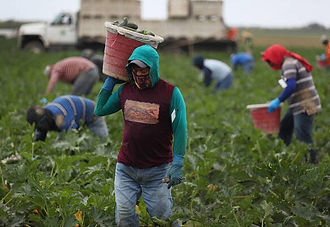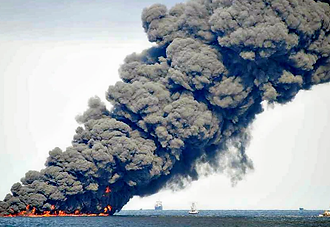
CLIMATE ACTION
Think Covid-19 Disrupted the Food Chain? Wait and See What Climate Change Will Do
July 07, 2020
By Georgina Gustin
Climate change will massively disrupt the global food supply chain. The impact of Covid19 on the world's food supply chains has been challenging for sure... but this has only been a partial test of what humanity will face due to the disruption from extreme weather changes and other threats to our food sources.
The truth about the future of gas: We don't need to build anymore
June 22, 2020
By David Wooley
A new study from UC Berkeley provides the latest answer, demonstrating it is technically and economically feasible to reach 90% clean electricity by 2035 without building any new gas plants and reducing generation from existing plants by 70%, all without any increase in wholesale power costs compared to today.
Plunge in carbon emissions from lockdowns will not slow climate change
May 20, 2020
By Alejandra Borunda
In May, the concentration of carbon dioxide in the atmosphere crept up to about 418 parts per million. It was the highest ever recorded in human history and likely higher than at any point in the last three million years.
That record was broken in the midst of the coronavirus pandemic, even though the health crisis has driven one of the largest, most dramatic drops in CO2 emissions ever recorded.
During the peak of the global confinements in the first quarter of the year, daily emissions were about 17 percent below last year’s, according to research published this week in Nature Climate Change.
But even such big drops in carbon dioxide emissions will have little impact on overall CO2 concentration in the atmosphere, says Richard Betts—a scientist at the U.K.’s Met Office—and that’s what matters most for climate change.
Reversing the Climate Crisis Isn't On You. We Need to Change the Entire System
June 18, 2020
By Tristan Kennedy
For starters, 71 percent of all global carbon emissions come from just 100 companies. While these fossil fuel producers continue to pump out pollution unabated, using a refillable coffee cup makes about as much difference as moving a deckchair on the Titanic two centimetres to the left.
... "We're all living in this toxic system," says Alice Wilby, a spokesperson for Extinction Rebellion. Even when there are good options, taking "individual responsibility is often not a matter of choice, but a matter of privilege". Which is why, in common with most climate groups, XR argues that it's the system itself that needs to change, not just the way individuals operate within it.
New report outlines how cities and real estate sector can partner to fight climate change
June 10, 2020
Contents from this article are originally published by the Urban Land Institute.
Cities across the country have made bold commitments to limit climate change by reducing, and eventually eliminating, the carbon pollution from buildings. But the public sector can't deliver these commitments alone. Following through will require city leaders to work alongside community leaders, including those from the nonprofit and private sectors.
A new report by the Urban Land Institute (ULI), "Decarbonizing the Built Environment: 10 Principles for Climate Mitigation Policies," summarizes the best thinking from ULI’s Greenprint Center for Building Performance and the Urban Sustainability Directors Network (USDN) about how the public and private sectors can collaborate more effectively.
◄
1 / 1
►

























